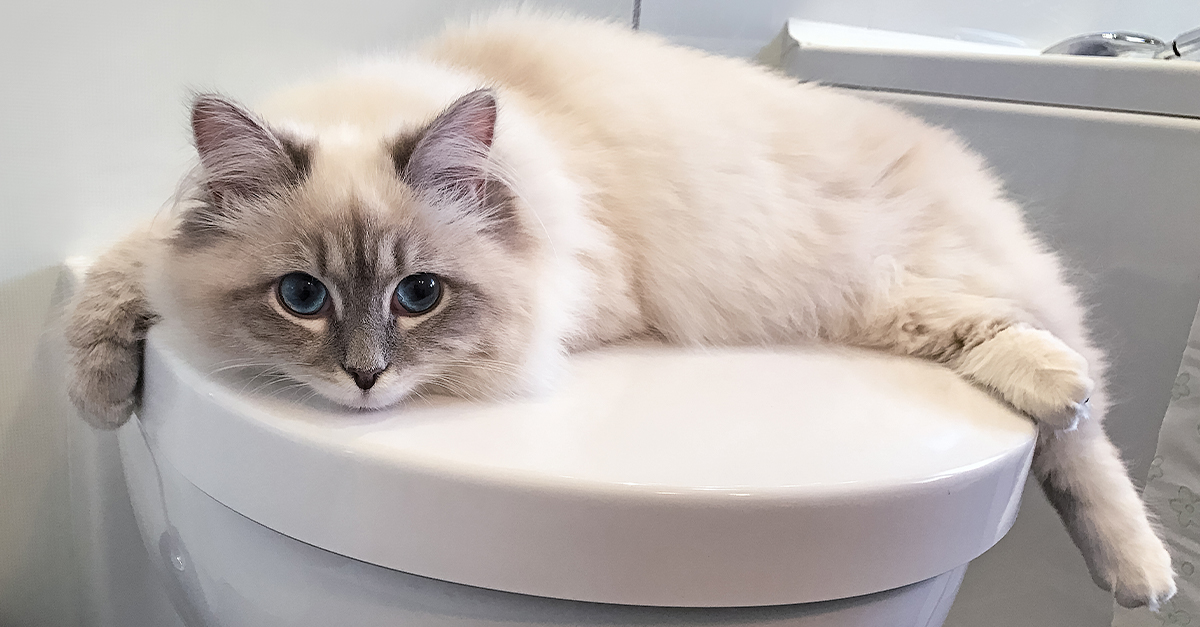Reasons You Should Avoid Flush Cat Poop Down Your Toilet - Important Facts
Reasons You Should Avoid Flush Cat Poop Down Your Toilet - Important Facts
Blog Article
Almost everyone maintains their personal thinking on the subject of Don’t flush cat feces down the toilet.
:max_bytes(150000):strip_icc()/0S1A1090-49a8e2c66f8e41d6901f2559787a7f24.jpg)
Intro
As pet cat proprietors, it's necessary to be mindful of how we throw away our feline close friends' waste. While it might seem practical to purge cat poop down the commode, this technique can have destructive consequences for both the setting and human health.
Alternatives to Flushing
The good news is, there are much safer and more accountable means to throw away cat poop. Consider the adhering to alternatives:
1. Scoop and Dispose in Trash
One of the most usual method of taking care of cat poop is to scoop it into a biodegradable bag and toss it in the garbage. Be sure to make use of a committed clutter inside story and throw away the waste quickly.
2. Use Biodegradable Litter
Choose naturally degradable pet cat trash made from materials such as corn or wheat. These trashes are environmentally friendly and can be safely disposed of in the garbage.
3. Hide in the Yard
If you have a backyard, consider burying cat waste in a designated location away from vegetable yards and water sources. Make sure to dig deep sufficient to stop contamination of groundwater.
4. Install a Pet Waste Disposal System
Purchase a pet dog waste disposal system especially made for pet cat waste. These systems use enzymes to break down the waste, decreasing smell and environmental impact.
Health Risks
In addition to ecological problems, flushing pet cat waste can also posture health risks to people. Cat feces might contain Toxoplasma gondii, a parasite that can trigger toxoplasmosis-- a potentially extreme disease, specifically for pregnant ladies and people with damaged immune systems.
Environmental Impact
Flushing pet cat poop presents unsafe pathogens and parasites into the water supply, posing a significant threat to aquatic ecological communities. These impurities can negatively affect marine life and compromise water top quality.
Final thought
Responsible family pet possession expands past offering food and sanctuary-- it likewise involves appropriate waste administration. By avoiding purging cat poop down the bathroom and opting for alternative disposal techniques, we can minimize our environmental impact and shield human health and wellness.
Why You Should Never Flush Cat Poop Down the Toilet
A rose by any other name might smell as sweet, but not all poop is created equal. Toilets, and our sewage systems, are designed for human excrement, not animal waste. It might seem like it couldn’t hurt to toss cat feces into the loo, but it’s not a good idea to flush cat poop in the toilet.
First and foremost, assuming your cat uses a litter box, any waste is going to have litter on it. And even the smallest amount of litter can wreak havoc on plumbing.
Over time, small amounts build up, filling up your septic system. Most litter sold today is clumping; it is made from a type of clay that hardens when it gets wet. Ever tried to scrape old clumps from the bottom of a litter box? You know just how cement-hard it can get!
Now imagine just a small clump of that stuck in your pipes. A simple de-clogger like Drano isn’t going to cut it. And that means it’s going to cost you big time to fix it.
Parasitic Contamination
Believe it or not, your healthy kitty may be harboring a nasty parasite. Only cats excrete Toxoplasma in their feces. Yet it rarely causes serious health issues in the cats that are infected. Most people will be fine too if infected. Only pregnant women and people with compromised immune systems are at risk. (If you’ve ever heard how women who are expecting are excused from litter cleaning duty, Toxoplasma is why.)
But other animals may have a problem if infected with the parasite. And human water treatment systems aren’t designed to handle it. As a result, the systems don’t remove the parasite before discharging wastewater into local waterways. Fish, shellfish, and other marine life — otters in particular — are susceptible to toxoplasma. If exposed, most will end up with brain damage and many will die.
Depending on the species of fish, they may end up on someone’s fish hook and, ultimately on someone’s dinner plate. If that someone has a chronic illness, they’re at risk.
Skip the Toilet Training
We know there are folks out there who like to toilet train their cats. And we give them props, it takes a lot of work. But thanks to the toxoplasma, it’s not a good idea.

We were guided to that write-up about Don’t flush cat feces down the toilet through someone on a different website. Sharing is caring. Helping people is fun. Thanks so much for going through it.
Schedule Estimate Report this page